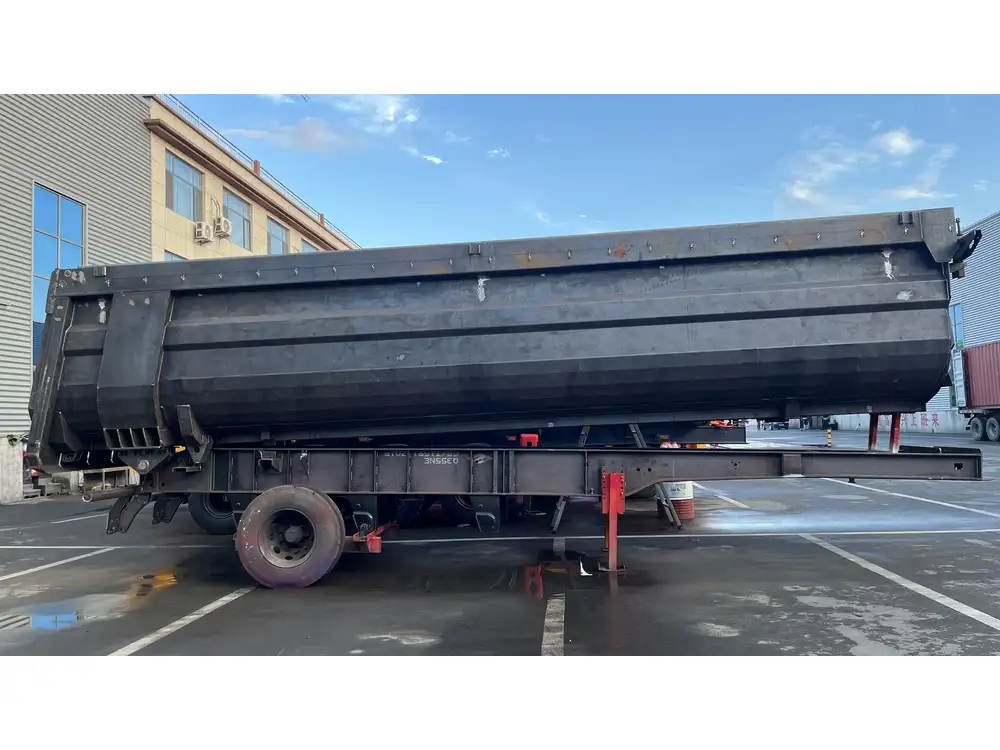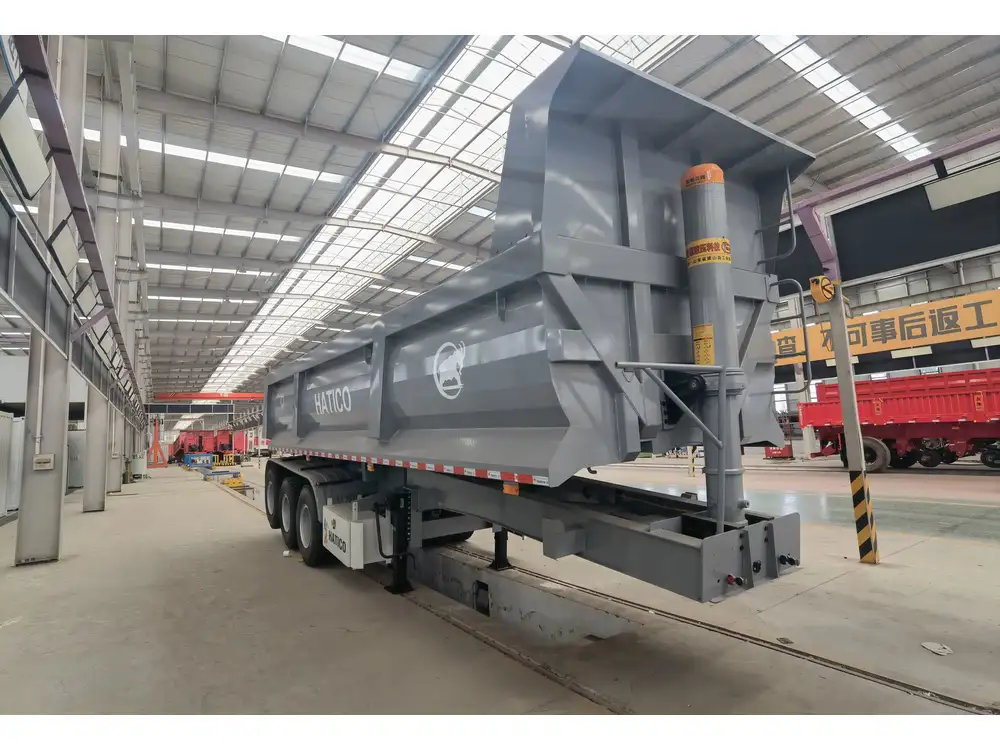When it comes to dump trailers, understanding the optimal size for a gas motor is essential for achieving the perfect blend of performance, efficiency, and operational capability. Whether you’re in the construction industry, landscaping, or waste management, selecting the appropriate motor size can significantly influence productivity and the longevity of your equipment. Here’s a detailed exploration of the factors to consider when determining what size gas motor for your dump trailer is best suited for your needs.
Understanding Dump Trailer Operations
Dump trailers serve various industries, providing the necessary functionality for transporting and unloading materials such as dirt, gravel, debris, and other bulk items. The operational efficiency of a dump trailer directly correlates with the size and capacity of its gas motor. Thus, it’s vital to comprehend how these components interact to produce optimal performance.
Key Factors Influencing Motor Size
Load Capacity: The weight of materials being transported is a critical factor. The heavier the load, the more power you will need from your motor. Evaluate your typical hauling requirements to estimate the necessary horsepower (HP).
Trailer Specifications: Every dump trailer model comes with specific engineering limitations. It is crucial to know the gross vehicle weight rating (GVWR) to match with the motor’s capacity.
Application Type: Different tasks call for varying levels of power. For instance, regular landscaping might not require the same horsepower as heavy-duty construction work.
Terrain: If you’re operating in hilly or uneven environments, a more powerful motor may be needed to navigate challenging conditions effectively.
Speed Requirements: If your operations demand quick loading and unloading cycles, consider a motor that can deliver higher RPMs (revolutions per minute).

Table: Load Capacity vs. Recommended Motor Size
| Load Capacity | Recommended Motor Size (HP) |
|---|---|
| Up to 3,000 lbs | 5-7 HP |
| 3,000 – 6,000 lbs | 8-12 HP |
| 6,000 – 10,000 lbs | 12-16 HP |
| Over 10,000 lbs | 16-20 HP |
Evaluating Gas Motors
When choosing motors for dump trailers, gas options generally come in two main types: 2-stroke and 4-stroke. Each type has its advantages and disadvantages, and understanding these can help you make an informed decision.
2-Stroke Motors
Advantages:
- Higher power-to-weight ratio.
- Simple design leads to lighter weight.
- Generally easier to maintain.
Disadvantages:
- Less fuel-efficient.
- More emissions produced.
- Shorter lifespan.

4-Stroke Motors
Advantages:
- More fuel-efficient, leading to lower operational costs over time.
- Produces fewer emissions, making it better for the environment.
- Generally provides longer service life.
Disadvantages:
- Heavier, potentially impacting the overall weight of your trailer.
- More complex design might lead to more expensive repairs.
| Motor Type | Power Output | Fuel Efficiency | Emission Levels | Typical Application |
|---|---|---|---|---|
| 2-Stroke | High | Moderate | High | Light-duty applications |
| 4-Stroke | Moderate to High | High | Low | Heavy-duty applications |
Horsepower Calculation: A Practical Approach
To determine the horsepower required for your dump trailer gas motor, you can apply a simple formula based on the expected load and terrain conditions.
Formula:
[ \text{HP} = \frac{\text{Total weight} \times \text{Acceleration}}{550} ]
Where:
- Total weight = weight of the load + weight of the trailer.
- Acceleration = the desired speed of the load.
Consider adding an additional 10-15% to your calculation to ensure you have enough power for unexpected challenges.
Example Calculation
Let’s say you have a total weight of 8,000 lbs (trailer + load) and you want to achieve an acceleration of 3 ft/sec².
- Using the formula:
[ \text{HP} = \frac{8000 \times 3}{550} \approx 43.64 \text{ HP} ]
Given this calculation, you might consider a gas motor that generates at least 45 HP, factoring in the additional power for optimal performance.

Motor Brands to Consider
Selecting high-quality motors can greatly impact the reliability and efficiency of your dump trailer. Below are reputable brands worth considering:
- Honda: Known for reliability and low emissions, Honda’s engines offer various options suitable for medium to heavy-duty applications.
- Briggs & Stratton: Offering a wide range of horsepower, their motors are commonly used in various heavy-duty machinery, making them a solid choice.
- Kohler: Kohler engines are recognized for their durability and performance, making them a staple in both light and heavy applications.
- Subaru: With a focus on fuel efficiency and reduced emissions, Subaru motors are ideal for environmentally conscious operations.
Comparison of Popular Motor Models
| Brand | Model | Horsepower | Fuel Type | Features |
|---|---|---|---|---|
| Honda | GX Series | 5 to 25 HP | Gasoline | Quiet operation, low vibration, durable |
| Briggs & Stratton | Vanguard Series | 13 to 26 HP | Gasoline | High durability, excellent torque |
| Kohler | Command PRO | 15 to 27 HP | Gasoline | Extended lifespan, high performance |
| Subaru | EH Series | 6 to 25 HP | Gasoline | Lightweight, efficient |
Maintenance Tips for Gas Motors in Dump Trailers
To ensure your gas motor remains in optimal condition, regular maintenance is crucial. Here are some practical tips:
Routine Oil Changes: Change the motor oil as per the manufacturer’s recommendation, typically every 50 hours of operation. Use high-quality oil to enhance performance and longevity.
Check Fuel System: Ensure the fuel lines and filters are clean. Old fuel can cause operational issues — consider using fuel stabilizers if the equipment is not used frequently.
Inspect Spark Plugs: Replace spark plugs annually or as needed to promote efficient ignition and improve fuel economy.
Air Filter Maintenance: A clean air filter helps maintain engine performance. Inspect it regularly and clean or replace it based on condition.
Cooling System: Ensure that the cooling fins and any relevant components are clean to prevent overheating.

Conclusion: Making an Informed Decision
Selecting the right size gas motor for your dump trailer is a decision that requires careful consideration. By evaluating your loading needs, understanding the specifications and the type of motor suitable for your tasks, and conducting proper maintenance, you can extend the lifespan of your equipment and improve operational efficiency.
Final Checklist Before Purchase
- Assess the weight of loads typically transported.
- Understand the terrain in which the dump trailer will operate.
- Consider the specific tasks and speed requirements of your business.
- Choose a reputable motor brand that suits your needs and budget.
- Plan a regular maintenance schedule to keep your motor in optimal condition.
By adhering to these guidelines, you can confidently choose a gas motor that enhances your dump trailer’s performance, ensuring you’re well-equipped to handle all tasks effectively and efficiently. Your investment will yield benefits in productivity, cost savings, and operational excellence.



